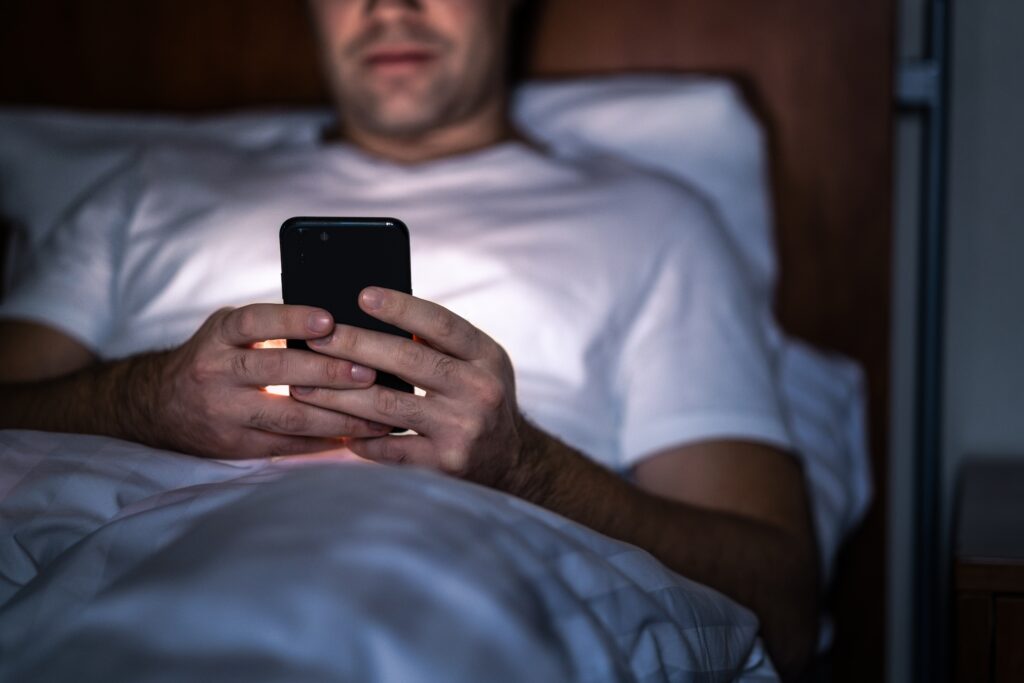Using screens in bed may be harming sleep more than people realize. A new study from Norway found that young adults who use digital devices before sleeping report more sleep problems and higher chances of insomnia.
More Screen Time, Less Sleep
The study surveyed over 45,000 people between 18 and 28 years old across Norway. Researchers wanted to understand how bedtime screen habits affect sleep. The results showed that each extra hour of screen use increased the risk of insomnia by 63%. It also shortened sleep time by 24 minutes.
Dr. Gunnhild Johnsen Hjetland from Norway’s Public Health Institute led the research. She explained that while they found a strong connection, they could not say for sure if screens caused sleep issues. It is possible that people with insomnia turn to screens more often rather than screens directly causing insomnia.
What Type of Screen Use Matters Most?
Participants answered questions about their screen habits. They reported using digital media in bed, including:
-
Scrolling social media
-
Watching movies or TV shows
-
Browsing the internet
-
Playing games
About 69% of respondents used social media before sleeping, often alongside other digital activities. The researchers looked at whether different screen activities had different effects on sleep. However, Dr. Hjetland said the specific type of content mattered less than the total screen time. “We observed no major difference between social media and other screen types, which makes screen time the real concern,” she explained.
Insomnia and Sleep Struggles
The study asked participants how often they had trouble falling asleep, woke up too early, or felt exhausted during the day. Researchers classified people with chronic insomnia if these issues happened at least three times per week for over three months.
The findings add to growing concerns about how modern habits impact sleep. According to various health estimates, up to one-third of adults in the United Kingdom suffer from insomnia. Many blame late-night social media use and endless scrolling for worsening sleep.
Sleep specialist Joshua Piper from ResMed UK said the research supports earlier studies. He noted that digital devices disrupt both the time available for sleep and the body’s ability to rest properly.
Why Night Modes Don’t Solve the Problem
Many people use night mode or adjust screen brightness to reduce sleep disruption. However, experts warn that brightness is not the biggest issue. The real problem is mental stimulation. Scrolling through social media, watching videos, or responding to messages keeps the brain active when it should be winding down.
Dr. Kat Lederle, a sleep expert, said that engaging with content before bed makes it harder to relax. “People believe that dimming screens will help, but it’s the content itself that keeps the brain alert,” she explained.
How to Improve Sleep
Experts recommend setting aside screens at least an hour before bed. They also encourage:
-
Keeping a consistent sleep schedule
-
Avoiding caffeine, alcohol, and heavy meals late at night
-
Creating a relaxing bedtime routine, such as reading or taking a warm bath
-
Getting natural daylight in the morning to help regulate the body clock
-
Adjusting bedroom conditions to be quiet, cool, and dark
Mental health organizations like Mind and Rethink also warn against forcing sleep. They suggest doing calming activities instead, such as deep breathing exercises.
Need for More Research
The Norwegian research team believes more studies are needed to track long-term sleep patterns. They also want to explore how late-night notifications and alerts might disturb sleep cycles. Their goal is to develop clearer recommendations for young adults and students.
As screen use continues to rise, sleep problems may become more common. Simple changes, like reducing screen time before bed, could help people sleep better.
